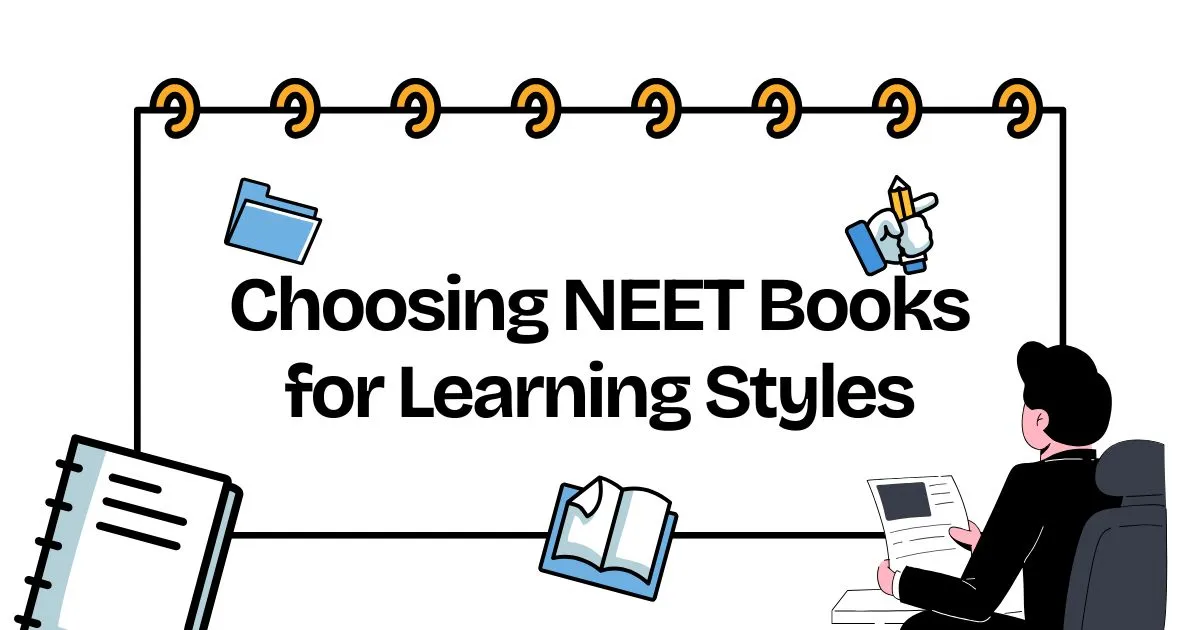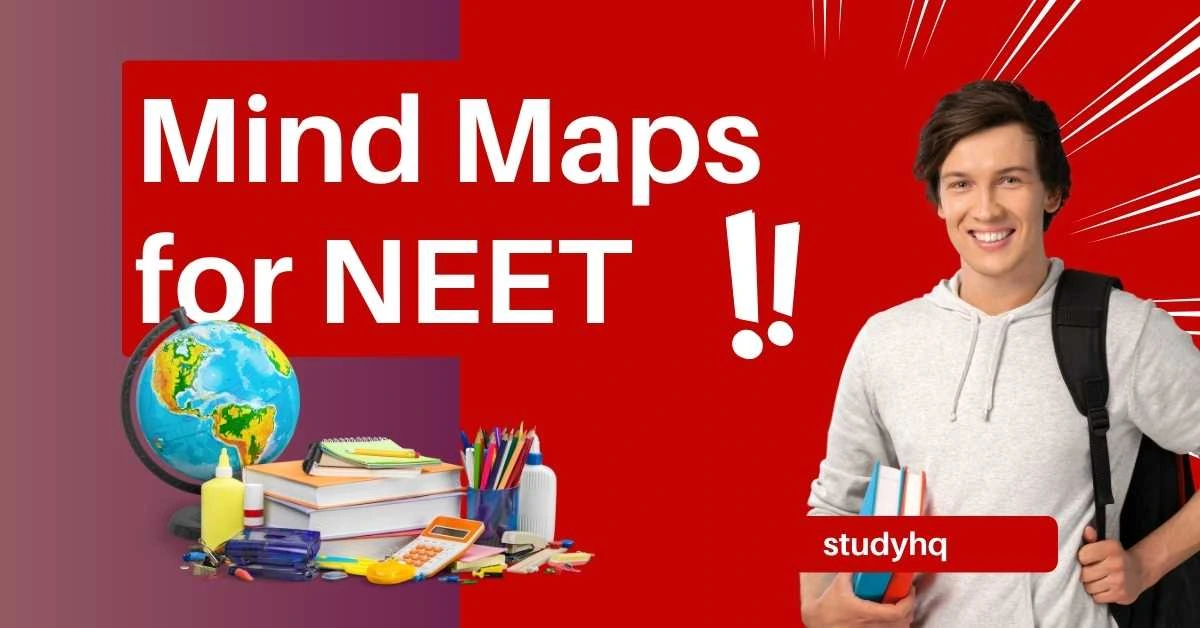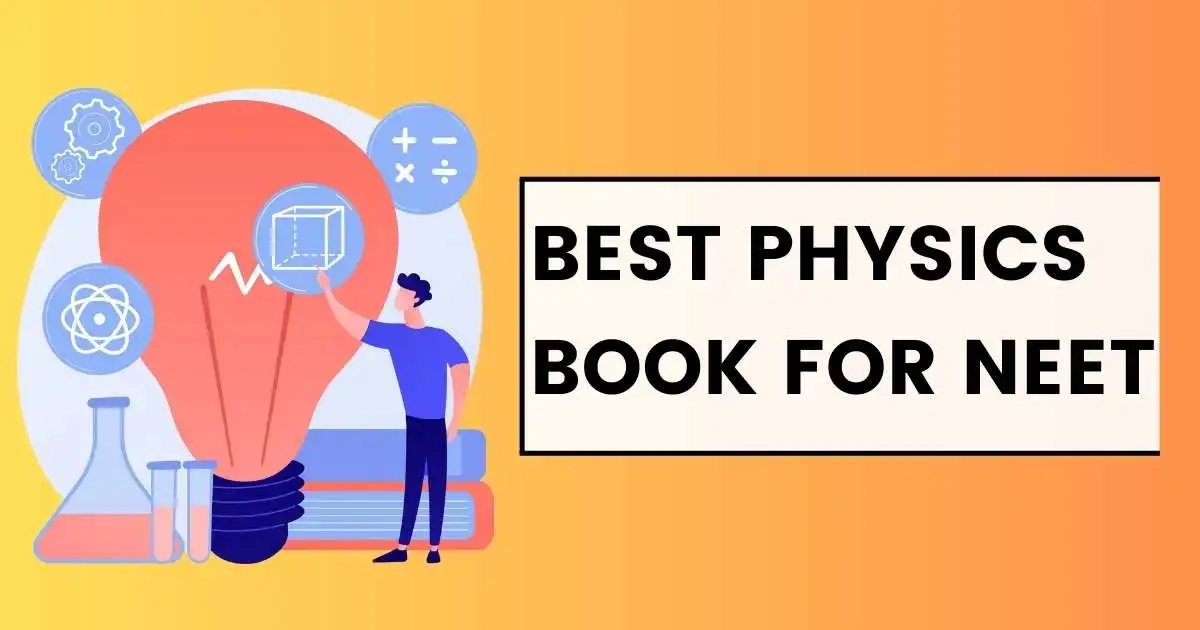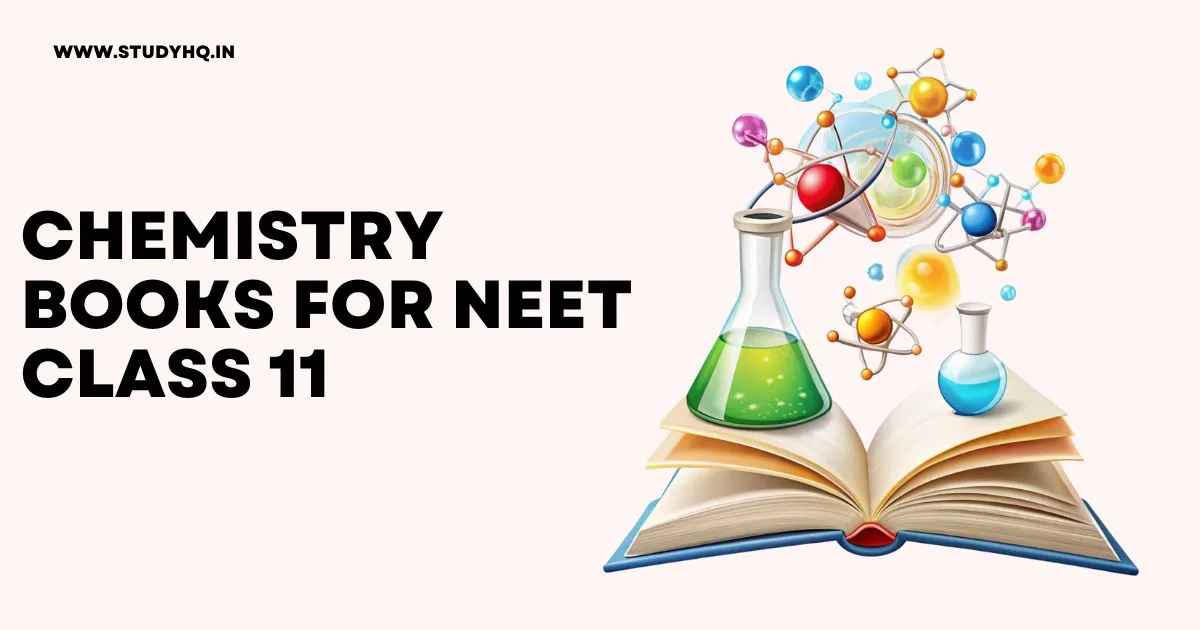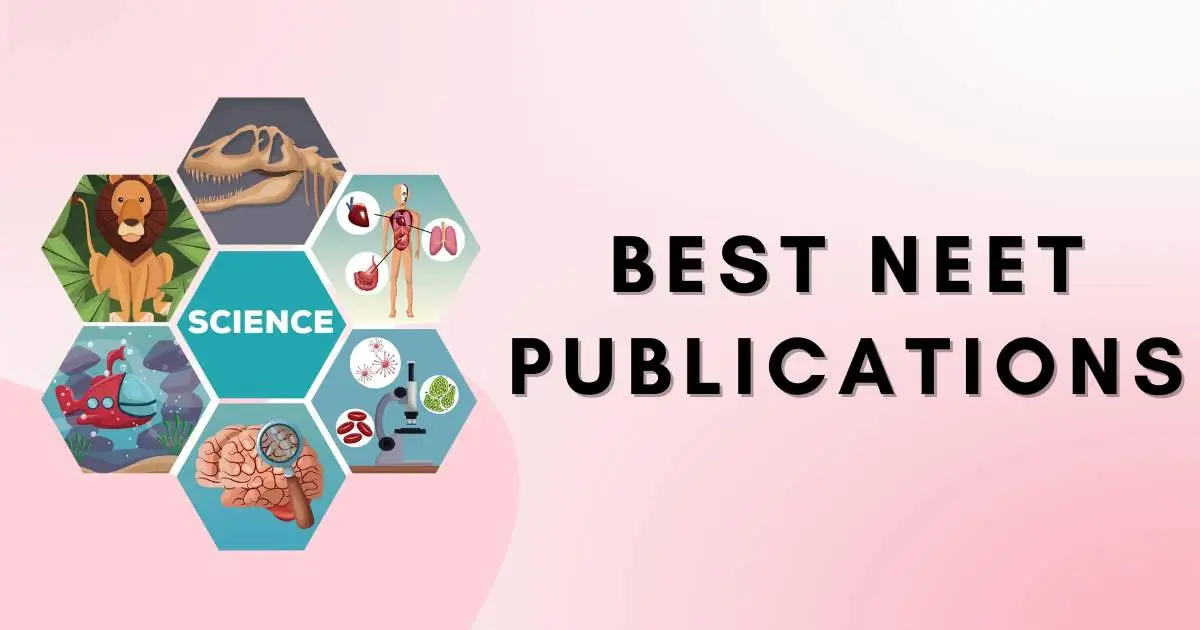Every person has distinct ways of learning and understanding information and knowledge; everyone processes information differently depending on their preferences, strengths, and experiences.
When preparing for competitive exams like NEET, learning what works best for you will allow you to tailor study methods accordingly and maximise efficiency. Recognising your style and following the right NEET books based on your learning style can significantly increase your capacity to absorb, retain, and apply knowledge effectively.
This article will help you understand different learning styles and suggest the right NEET books based on your learning style.
- Why Selecting Appropriate Books Is of Utmost Importance
- Understanding Your Learning Style
- 1. Books for Visual Learners
- 2. Books for Auditory Learners
- 3. Books for Kinesthetic Learners
- 4. Books for Reading/Writing Learners
- Wrap Up: Right NEET Books Based on Your Learning Style
- FAQ for Right NEET Book Selection:
Why Selecting Appropriate Books Is of Utmost Importance
NEET has a vast syllabus covering Physics, Chemistry, and Biology Classes 11 and 12. Many books and guides are available for preparation purposes, but the difficulty lies in narrowing your selection to those that best help your preparation strategy. Making the wrong choice will overwhelm you, take up time, and decrease your efforts.
Advantages of selecting appropriate NEET books:
- Relevant books ensure you can focus on only essential aspects without diversifying.
- Books tailored to your learning style convey concepts in a way that is easy to comprehend and retain.
- Proper material saves time, which helps in practice and revision.
- Organised resources will ensure you not only understand but can also retain key concepts.
Understanding Your Learning Style
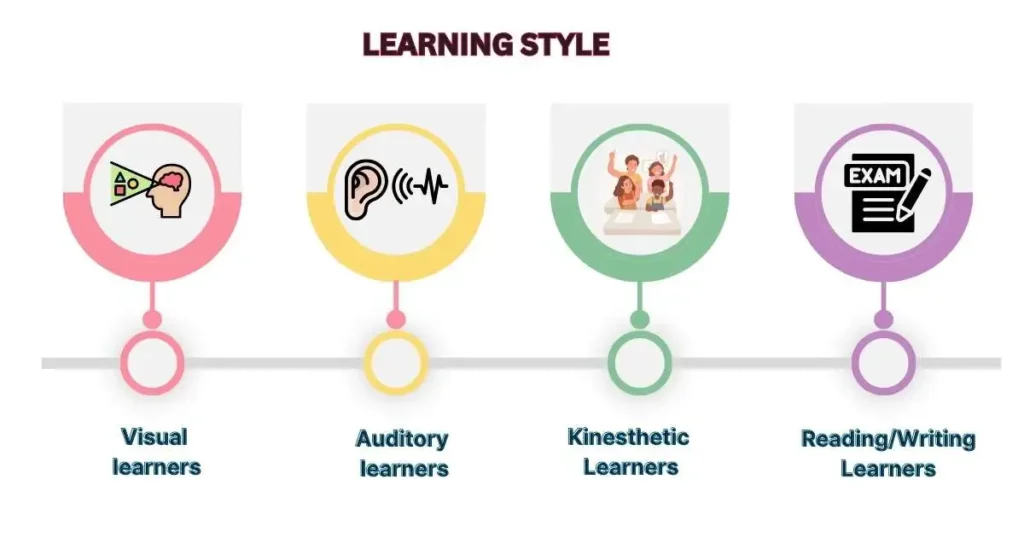
To be effective in NEET preparation, you must understand your learning style. Each student processes and absorbs information differently. Adapting your study habits to your unique preferences will increase effectiveness and confidence.
- Visual learners: Benefit when concepts are conveyed using charts, diagrams, and other visual aids.
- Auditory learners: Retain knowledge more efficiently by watching discussions, lectures, or recordings.
- Kinesthetic Learners: Learn most effectively through hands-on activities incorporating practical applications and active problem-solving.
- Reading/Writing Learners: Easily assimilate information by reading texts and then writing it down on paper to revise later.
1. Books for Visual Learners

Visual learners excel when presented with information in visual formats, such as diagrams, flowcharts, and illustrations, that help break down complex ideas into simpler ones. Some books that can help visual learners include:
Biology:
(a) Trueman’s elementary biology
Trueman’s Elementary Biology is an excellent resource for learning biology. It features diagrams that make even the most intricate biological processes easy to visualise.
(b) NCERT fingertips Biology
The NCERT Fingertips Biology book includes colourful illustrations to clarify concepts quickly. Its large selection of diagrams and colourful illustrations make each topic accessible.
Chemistry:
(a) Modern’s ABC of Chemistry
Modern’s ABC of Chemistry provides detailed flowcharts, tables, and graphics explaining inorganic and organic chemistry concepts.
(b) OP Tandon Physical Chemistry
OP Tandon Physical Chemistry text offers charts and visuals to explain physical concepts like thermodynamics and kinetics.
Physics:
(a) HC Verma concepts of Physics
HC Verma’s concepts of physics provide numerous graphs, diagrams, and examples to help readers understand mechanics and electromagnetism more easily.
(b) DC Pandey objective Physics for NEET
DC Pandey objective Physics for NEET offers conceptual diagrams and step-by-step problem-solving exercises tailored to NEET exams.
2. Books for Auditory Learners
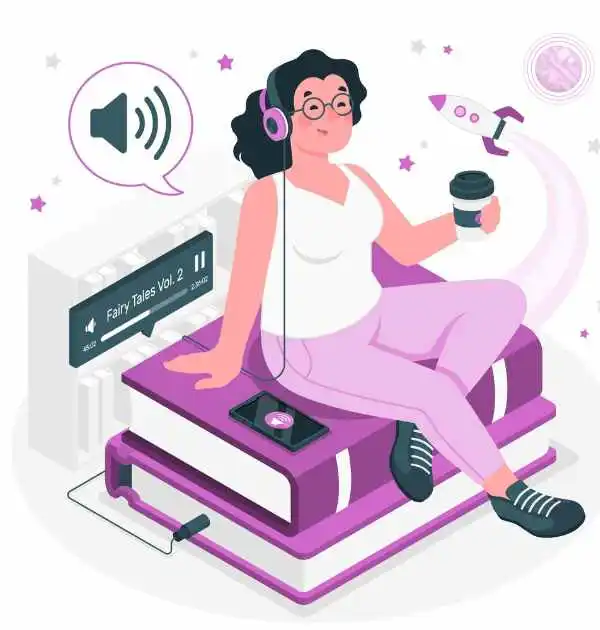
Auditory learners best absorb verbal information, such as lectures, discussions, or audio materials. Exploring popular NEET-related audiobooks, listening to recorded lectures specifically aimed at NEET preparation, or listening to educational podcasts can help students comprehend the information in a way that is in tune with their preferred learning style.
(a) NCERT Audio books
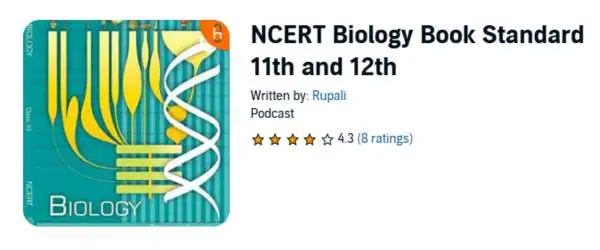
NCERT Audio books
Buy Now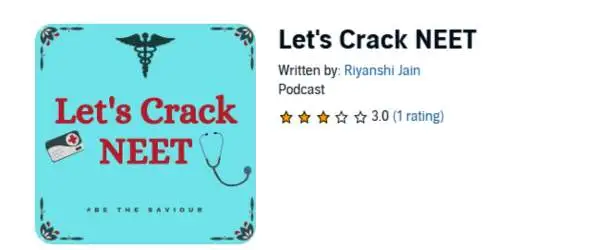
Let’s Crack NEET
Buy Now3. Books for Kinesthetic Learners

Kinesthetic Learners benefit most from action and practical engagement in learning environments, solving problems through hands-on activities. Some books that might help are:
(a) Cengage Physics for NEET
Cengage Physics for NEET is an extensive question bank with practical applications designed to test your knowledge.
(b) Biology by Dinesh
Biology by Dinesh offers hands-on activities, case studies, and practice exercises to deepen understanding.
4. Books for Reading/Writing Learners
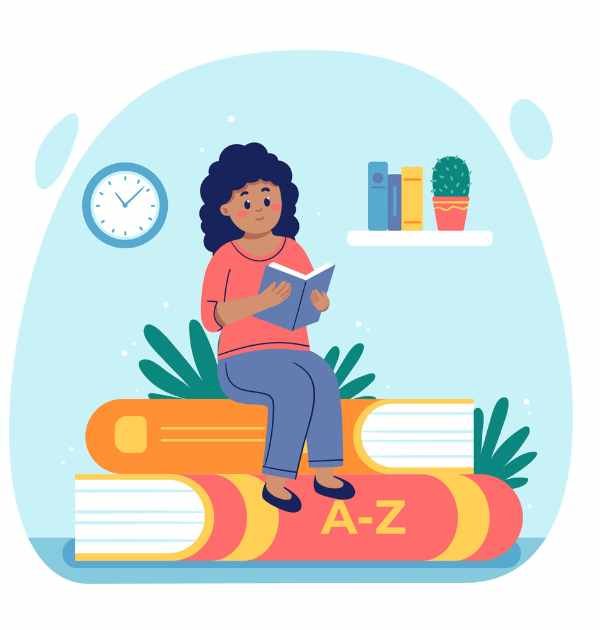
Detailed theory books with extensive explanations and exercises are ideal for students who learn best through reading and writing.
(a) NCERT Biology class 12
For in-depth textual explanations essential for NEET exams.
(b) Pradeep Biology class 12
Pradeep Biology class 12 Covers topics with detailed textual explanations and practice questions.
Wrap Up: Right NEET Books Based on Your Learning Style
Today’s educational market provides an expansive selection of books to meet varying levels of expertise, areas of interest, and preferences.
You’ll find everything from textbooks to reference books, workbooks, and digital resources, giving you access to materials tailored to your pace, difficulty level, and depth of understanding for an optimal learning experience.
So take your time selecting your study material—it could make all the difference to your future success!
FAQ for Right NEET Book Selection:
-
What are the best NEET books for visual learners?
Biology: NCERT (11 & 12), Trueman’s Biology, MTG NCERT Fingertips (Diagrams & Mnemonics).
Chemistry: NCERT, Disha Mind Maps, GRB Concept Maps.
Physics: NCERT, DC Pandey, MTG Visual Notes. -
Which NEET books are recommended for students who prefer problem-solving practice?
DC Pandey objective books, NCERT at your FINGERTIPS, Mock test books by Disha Experts, Trueman’s Objective Books for NEET.
-
Are there NEET books suitable for auditory learners?
Auditory learners benefit from books with online video lectures and audio explanations. Some options include:
Oswaal NEET Question Banks – Comes with free online video lectures.
NCERT Audiobooks (Available on ePathshala App) – Helpful for listening-based learning.
Aakash iTutor and Allen Digital Content – Digital resources that complement books. -
What books are ideal for kinesthetic learners preparing for NEET?
Kinesthetic learners, who prefer hands-on learning, should choose books with interactive exercises:
“NEET 2024 Blockbuster FAQs” – Provides practical questions for active learning.
“MTG 34 Years NEET Previous Year Question Papers” – Hands-on practice with real exam questions.
“Self-Practice Workbooks for NEET” – Encourages active engagement. -
How can I choose NEET books that match my learning pace?
Identify your learning style and pace and choose books accordingly. Go for books with clear explanations and a gradual increase in difficulty. Never miss NCERT books for concept clarity. Practice often and progress.
-
Are NCERT books sufficient for NEET preparation?
NCERT books are essential, but it is also better to refer to additional reference books, solve previous years’ question papers, and take mock tests to strengthen your NEET preparation. MTG NCERT at Your Fingertips, DC Pandey, PW, and Arihant are some well-renowned names that you can depend on for preparation.
-
What factors should I consider when selecting NEET books based on my learning style?
Consider the following before choosing books:
✔ Your preferred learning style (Visual, Auditory, Kinesthetic, or Reading-based).
✔ Content clarity – Books should explain concepts simply.
✔ Practice questions – Books with mock tests & PYQs are best.
✔ Supplementary materials – Online support and digital tools can be helpful.
